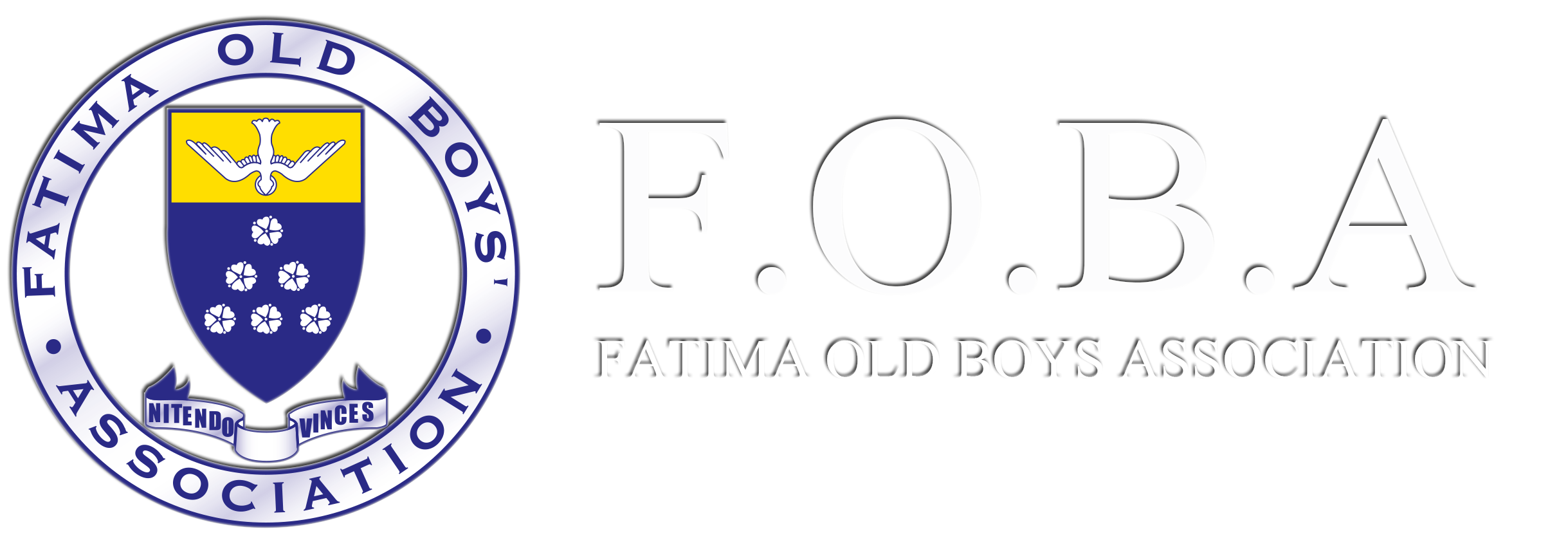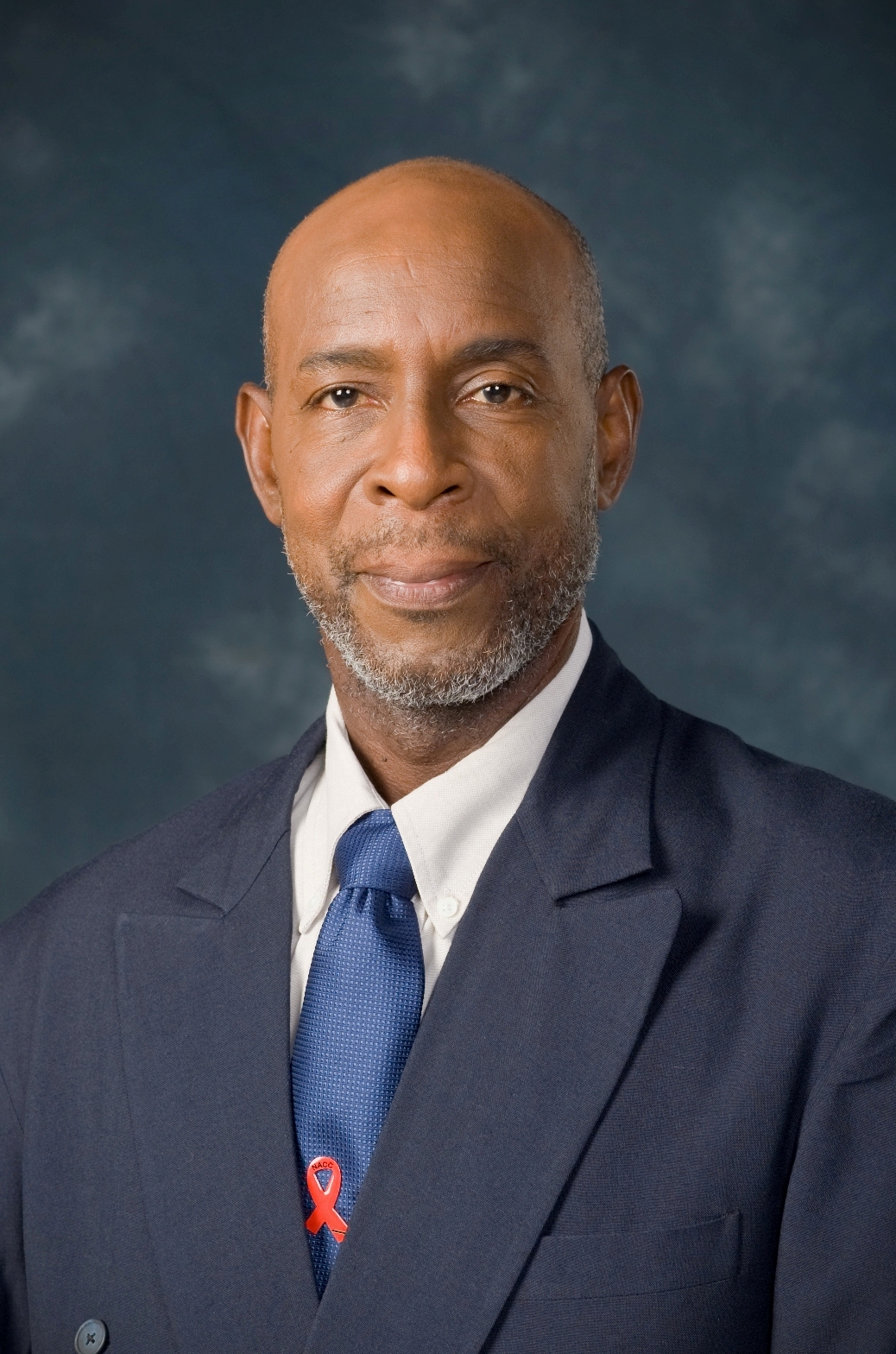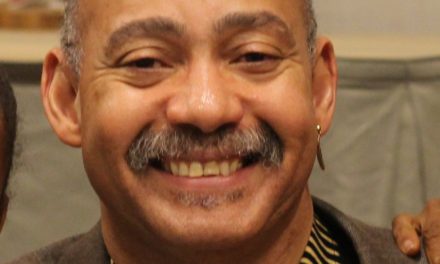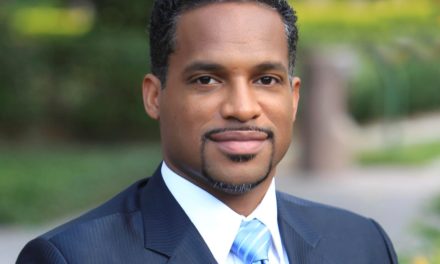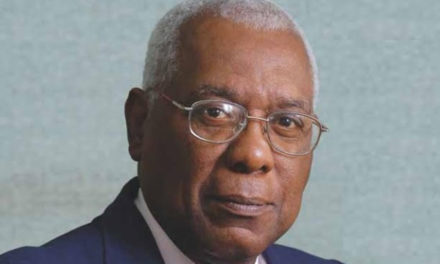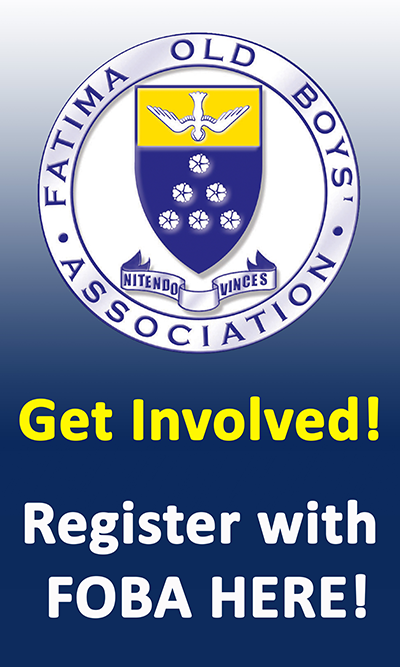- Views 4493
- Likes
An interview with the Honourable Emmanuel George. At the time of this interview he was the Minister of National Security, a post he held from Monday 22nd April 2013. Shortly after this interview he was reassigned on September 5th to the portfolio of Minister of Justice.
Q: Do people have difficulty believing that their Minister is also DJ Hurricane George?
A: People don’t necessarily have difficulty believing it but they do marvel that I can be such a fun person to be a DJ and yet be somebody who can work well enough to be a Minister, and before that a Permanent Secretary, and before that Transport Commissioner and before that a Senior Public Servant. Generally most people feel that doing work is serious business and deejaying is fun business but I remember many years ago when I was Transport Commissioner a gentleman saw me in the road and said to me, “Mr. George, how could you be Transport Commissioner and also deejay, because I see you having fun in fete but when I see you down Licensing Office, your face serious as a judge?”…and that is exactly how it is. When I’m working, I’m working and when I’m having fun, I’m having fun. It’s easy for me to separate the two.
Q: How did you get the name Hurricane George?
A: Actually, that was when I used to play a little football and I was quick and rough. The guys gave me the name ‘hurricane’ and it stuck with me. I simply transferred it to my DJ name.
Q: Did Fatima contribute in any way to your interest in deejaying and entertainment?
A: No, actually my interest in deejaying came as a result of me belonging to a group called the “Catholic Youth Organization”. It was a group in San Juan and one of the many groups that comprised the “Catholic Youth Organization”. There I had some friends, and in particular Albert Belle who was a DJ and we used to party a lot to his music. I followed him around for a while and when I decided to go to the University of the West Indies (UWI), I bought a little set. I bought speakers from Albert which he wanted to get rid of. I bought a little amplifier from Oswald Gabriel second hand and my mother had an old grundig gramophone at home and I took the turn-table out of it. Albert also carried me to Rhyner’s Record Shop on Prince Street, Port of Spain where I got my first records. That is how I started deejaying. I bought all these things around July 1969 and entered UWI in September.
At UWI, a group of guys in second year wanted to have a party and I volunteered to play for them. You would marvel…those guys were Kenneth Valley, Neil Rolingson, Lennard Prescott and Maurice Moniquette. Those guys gave me my first fete in UWI and I became the house DJ in UWI for several years after that, even after I left. I remember the party house on Watt’s Street. There are a number of bars in that area now.
The students at UWI had a lot of fun to my music. I eventually played in a lot of their weddings, then even in their children’s weddings later on. I’m very proud of the fact that I paid my way through University with my own money that I earned from deejaying. My daddy died when I was 18 and my mom was left with a large band of us. There were 11 of us children in the family so you could imagine it was quite a struggle. I used to charge people $12 and $15 to play in a fete at that time. I’m really proud of the legacy I left there and most importantly, people had a lot of fun in my parties!
Q: Was it challenging managing your public service career and your deejaying side by side?
A: To put it very succinctly, I could do both of those things and have fun doing both. They never got in the way of each other. People would tell you that during Carnival time which is very hectic, I would play in a fete every night and Ash Wednesday morning, I will be the first person in the office. It never affected me. I remember one of the Ministers I worked for in the past asking me how did I manage the both things so well. I told him that I do it naturally. I think fundamental to it all was the fact that I enjoyed both of them. I think I danced more than anybody else in my own fetes. Now you don’t see deejays dancing especially now with all the mixing.
Q: What did you study in UWI?
A: I have a Bachelor’s in Economics.
Q: You have served as Minister of Public Utilities, Minister of Works and Infrastructure and now as Minister of National Security. Which one has been the most challenging and which one the most rewarding?
Well, I’ve only been in National Security for three months and it is the most challenging in the sense that it is broader than the others. Of course because it is the Ministry that deals with crime, it is at the forefront of public discourse and the public is very demanding of the Minister who performs in this Ministry. People understandably guard their safety very jealously. Throughout my years, I’ve always taken ownership of the things I am responsible for. As a DJ I was always professional. I never reached late for a party. So too in my life as a public servant, I took ownership.
For example, when I was Minister of Public Utilities, I had a responsibility for water and every single leak in the pipelines belonged to me. If I saw a leak, I would call it in to WASA. Anybody who wrote in the paper, called into the radio stations or called me about a leak, I took ownership of it. It was my leak to fix and so I would call it in to WASA. Likewise, when I was Minister of Works and Infrastructure, every pothole belonged to me. Whenever people complained and burnt tyres and blocked roads, it was my responsibility and I took it on and did something about it. Now, in the Ministry of National Security, every murder belongs to me. I have to take responsibility for it. However, there is a lot more that the Ministry is responsible for, for example, immigration. Immigration issues are big issues in T&T. It has to do with deportation, provision of work permits, visa exemptions, passports being given to people.
Security deals with a whole host of things, cadets, the defense force (army, coast guard, air guard), so there are a lot of things that National Security deals with but the people are not focused on the others. All they are concerned with is the number of murders. The Minister is judged by the number of murders. It doesn’t matter how good he is in those other areas. If he doesn’t bring down the number of murders to “acceptable” levels, he cannot be judged as a successful Minister in this Ministry. That is the difficulty.
I’m very happy with the progress I made while in the Ministries of Public Utilities and Works and Infrastructure however. Thankfully the Prime Minister supported my initiatives and I can say that water as an everyday problem in Trinidad and Tobago is a thing of the past. There have also been many roadway developments throughout the country. The greatest challenge in Works was the extension of the Solomon Hochoy Highway to Pt. Fortin. In my view, there will always be protest, but in the long run the people of the country will solve those problems. The silent majority will exert pressure. This has happened before.
Q: How has this highly scrutinized Ministerial role (National Security) impacted your family life?
A: It has significantly impacted my life. All I do is go home, get some rest, get up in the morning at 3.30, try to get some exercise, go to the office at 6 and work till 8pm every day. There will be ceremonial functions etc. in between but all these things I consider them work. It leaves you no personal life. You are constantly working and sleeping. For example, people where I live accustomed seeing me cut my own lawn. Now it is extremely difficult to find a Saturday morning to cut my lawn. I tried help but they never do it properly so I stopped. If I don’t do it myself it doesn’t get cut. I used to do it religiously every Saturday. Now I can’t. This position is a major sacrifice that people don’t understand. You have to leave everything to become a Minister in service of the people. But I am enjoying it though, difficult as it is. It has been my modus operandi over my years of working to always enjoy what I do.
Q: What is your vision towards seeing a turnaround in the fight against crime?
A: The fight against crime has to be tackled from many fronts. The Ministry has the help of the police and army and so on. There are also many social programmes in place. We have to find a way though, to get the youths that are joining the gangs and dropping out of the school system to understand that the life of crime is a dead end and give them opportunities so that they would not go there. There’s the issue of parenting. I believe that while the police can do what they will, the Ministry and the Minister, the community NGOs, the religious groups etc all have a role to play in the fight against crime. I have some ideas that I want to explore to see how we can attract the youths into other directions. Other countries have done it for example Chile, Colombia and in the US in New York. We want to use their experiences in getting their crime under control to tolerable levels. We can’t eliminate it but at least to bring it to a manageable level in contrast to the runaway crime situation that currently exists. Securing the borders is also very important to prevent the guns and the drugs from coming in. They seem to be coming in faster than the police can get them off the street.
Overall, my vision is a multi-faceted approach from policing to the social programmes and NGOs, religious groups playing a part and learning from the successful examples of foreign Governments.
Q: How do you feel about the sentiment amongst some people that only the small fry are brought to justice and not the big fish?
A: I think a major part of it is the issue of prosecutions. There have been a number of drug finds but we haven’t been able to find the people actually bringing in the drugs. There is the issue of collection of evidence. Even if we were to catch these so called ‘big fish’, do we have enough evidence to convict them? The police may suspect who committed a murder but do not have enough evidence to convict them. Once you do not have evidence, you could suspect who you want, you cannot convict them. The prosecution and conviction rates have to go up to assist us in dealing with this situation.
Q: Do you consider yourself a politician or still a public servant?
A: To be honest, I’m still learning to be a politician. Some of my colleagues are way more advanced in this regard. I still have so much to learn in that arena. Deep inside, I’m still a public servant but I have to learn how to throw off that mantle and become more of a politician. When people heard that I was going to be a Minister, they wondered how I was going to do this, coming from a place where I had to be apolitical to now political. I think the experience I gained as a public servant is invaluable to me and for helping my colleagues deal with the issues they face in their Ministries.
Q: What is a typical day like?
A: I would get up at 3.30 a.m. and put in an hour’s exercise. I’ll be back home at about 5:00 a.m. and get to the office at 6:00 a.m. Sometimes I would start meetings at 6, 7 or 8 in the morning and work through the entire day. One of the challenges I face as Minister compared to when I was Permanent Secretary is that as PS I could have controlled my day. As a Minister you have very little control. On Mondays I have the Legislative Review Committee of Cabinet which meets at 9.30 a.m. That is followed by the Finance and General Purposes Committee which meets at 1.30 p.m. Both meetings could account for my entire morning and afternoon on Mondays. On Tuesday, we have Senate in the afternoon and invariably we will have things to prepare for the sitting from before. Sometimes the Senate will sit until very late as you know. Tuesday is gone. Wednesday I have a breather but sometimes we could have a caucus. Thursday is Cabinet so that day is gone. On Friday I would invariably have meetings also. So every day of the week is spoken for. You can’t say that you not doing. You have no choice and you work from morning to night then you go home shower and sleep. There is no time for anything else with this job. It is extremely difficult. You sacrifice your health, family, friends and social life. But the driving force for me is that I’m making changes in people’s lives.
Q: How do you feel about the state of things in the ruling party given the results of the Tobago and Chaguanas elections?
A: I think the ruling party has to sit up and take notice of both events and more particularly to that of the Chaguanas West event. We must make the necessary adjustments to ensure that it does not happen again in the upcoming local government elections and the general elections in 2015. The party has been jolted by the result but it has been jolted in its mid-term when governments are normally at their lowest popularity. The saving grace is that because it’s mid-term, the government has time to fix the problems that the electorate has with it.
Q: What years did you attend Fatima?
A: I entered the college in January 1961 and left in June of 1966. I completed O and A levels at Fatima. It was a wonderful period in my life and I have many stories that I can tell about my days at Fatima College. It was an experience that was second to none.
Q: Can you mention a couple striking memories (positive or negative) from your days at Fatima?
A: I remember playing an inter-class cricket game and was batting when my team had just a couple runs to make to win. The bowler bowled a long hop to me and I geared up to hit the ball way into the stratosphere but swung my bat way back and hit my stumps. It was mortifying to my partner and my colleagues.
I also remember breaking biche to go to cricket. In my day we got half day when there were test and territorial matches in the oval. However, the games started at 10:30 AM and because I wanted to see the first ball bowled very often a colleague of mine, John Prescod, and myself would slip out at recess time (10:15 AM) and go up to the oval on the school boys mound. I am not ashamed to admit that I broke biche to see cricket – never to do anything else, but I just couldn’t bear waiting till half day at 12:00 PM when practically the whole first session of play would have been finished. I hope John doesn’t mind me saying it.
I also remember Fatima winning the Intercol in 1965. It was such a euphoric time. After years of saying “well we go beat them next year” we were finally able to conquer. We won the game after much trauma having to come from behind to draw the game and then having to replay it before we won. The guys on the team: Everald Cummings, Roger Duprey, Watson & Earl Fough were really good – they were really first class footballers. At least for that one year we were particularly happy to be Fatima boys. However, after that year we went back to our old ways (Laughs).
Q: Were there any teachers at Fatima who had a special impact on you?
A: Yes Mr. Craigwell – he was a Jack-of-all-trades who could teach anything. He was a very respected teacher, so much so that you could get a C in your report book from any other teacher and argue with the dean against getting punished. However, if Mr. Craigwell gave you a C you would most certainly be punished. There was also Mr Barrett who was my English teacher, Mr Clive Pantin who taught me Spanish and the late Archbishop Anthony Pantin. The Pantins were a special crew because they would always start their classes with a joke. Whenever they walked in you looked forward to them cracking a joke – sometimes they were “stale” – but there would be peals of laughter before we settled down to work.
Q: What were your extra-curricular activities while at Fatima?
A: Other than playing cricket and football, I also played chess and was the school champion one year. I tried the choir but Fr. Cochrane told me I couldn’t sing so I gave that up.
Q: Have you maintained a strong relationship with Fatima alumni over the years?
A: I made a whole lot of friends at Fatima and we still do meet from time to time. There is a group of us who entered in 1961 that meet ever so often at Kampo restaurant to have a beverage, talk, laugh and reminisce.
Q: What is the make-up of your family (wife and kids)?
A: I am not married but I have four children – two girls and two boys. My kids are doing reasonably well and I am very proud of them.
Q: Outside of your professional life what are your interests and hobbies?
A: Of course the music – and I miss not playing now. Music has certainly been the biggest of all my hobbies. But I am also very interested in sports and will sit to watch virtually any sport on TV whether it’s tennis, golf, cricket, football or whatever. For music there is the term “Audiophile” to describe enthusiasts; if there is an equivalent term for a sports fan I will be called that. I love going to the oval to watch cricket and I take my sons with me all the time. There is a cultural thing with the cricket coming from my daddy to me and also from my mother who could tell you everything about Sobers, Weekes, Worrell and Walcott.
Q: What qualities and values did you take from Fatima that helped you in your career?
A: When you go to school you learn to be disciplined and to understand that whatever you want to achieve in life you have to work for it. My parents would teach me this at home, but in school it was being fortified by the teachers. It was not so much the passes that you got but the understanding that to be successful at anything you have to work hard at it. Fatima and the University of the West Indies provided me a framework for thought, but the fact that you had to work hard to achieve was the thing that was really brought home to me. I tell my children don’t worry about money, just try to be the best at what you do. If you are the best at what you do then the money and accolades would come later.
Q: What is your greatest aspiration?
A: My greatest aspiration is to see Trinidad & Tobago become a fine nation. I want to see our people develop a work ethic that makes Trinidad & Tobago become a great nation. In my view, our biggest problem as a country is that our work ethic is not good enough. If we had the work ethic of some other countries we would be difficult to beat.
Q: What would you say to a young Fatima student to encourage them into public life/service?
A: There is no higher calling than service to your fellow man. It is this service that brings the deepest sense of satisfaction. Your having all the money in the world doesn’t make for satisfaction. Satisfaction comes from serving people and the pleasure that you bring to them is all that you could ever want. My life has been trying to make people’s lives more enjoyable. As a DJ I wanted people to come to my fete and have a ball and in my life as a minister it is to make people’s lives better. It is all the same thing in my view – bringing joy to people.
